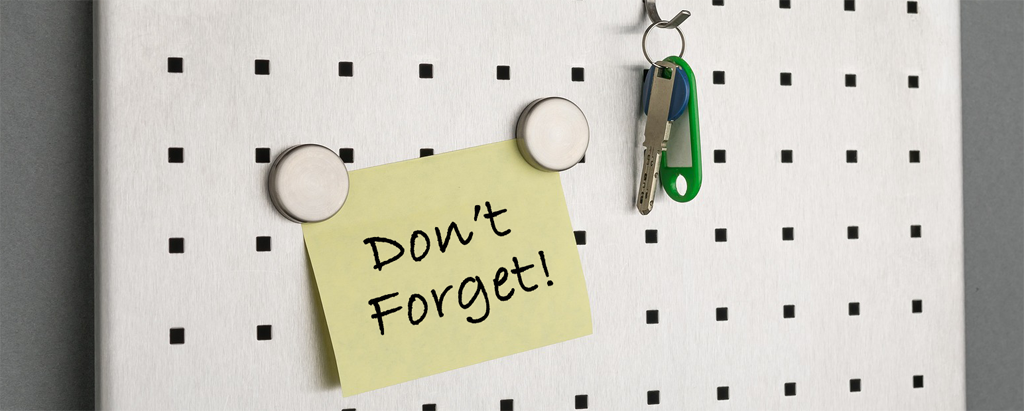
How to think about forgetful employees
During a talk I gave last week to a group of emerging leaders, a participant spoke about a situation where one of their staff members had forgotten to put away some dangerous chemicals. The chemicals were left out in the open where a group of vulnerable people could access them. This had happened before. The leader had hoped the forgetfulness was over and was upset that it was not. We discussed how to deal with the staff member.
One suggestion from the group was to explain to the staff person how dangerous the situation was and why the rules were so important to follow. This suggestion seems to make sense. The thinking is that if you impress upon the person how important it is to remember to do something, they will try harder and the problem will be solved.
Unfortunately, things do not work this way. Linton Sellen taught us that whenever we try to convince someone to “try harder” at something, we are implying that they are slacking and not trying hard enough. By sending that message, we may very well create a slacker where none existed before.
The key in a situation like this is to understand exactly what happened and address the root cause. Forgetfulness is never a conscious choice and so we should not be calling out forgetful people as slackers. We should be helping them by insisting they use checklists and calendars and other tools to organize time and tasks. If they will not engage in that process, then we can call them slackers. Until we help put the right tools in place, it is not their fault if they forget things from time to time. It is our fault as their leader that we are not helping them address workflow and organizational challenges.
Enjoyed this week’s blog?
Subscribe to the IBEX Payroll Leadership Blog for great tips and insight right in your inbox! We publish new leadership and employee engagement content every week !!